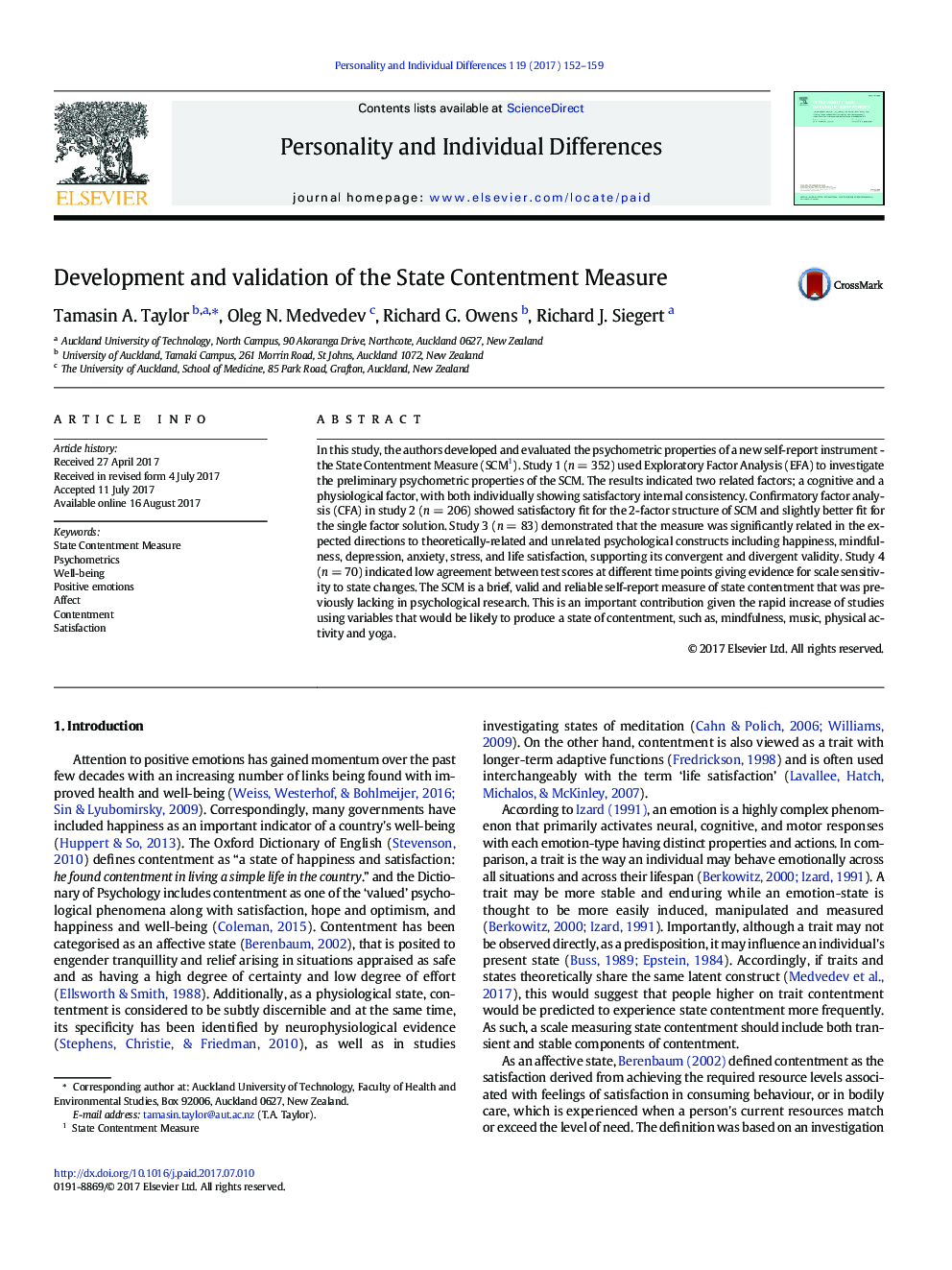| Article ID | Journal | Published Year | Pages | File Type |
|---|---|---|---|---|
| 5035669 | Personality and Individual Differences | 2017 | 8 Pages |
â¢A 10-item self-report State Contentment Measure developed and statistically validated.â¢State contentment measure includes cognitive- affective and physical components.â¢Single factor solution demonstrated better fit in Confirmatory Factor Analysis.â¢Strong convergent and divergent validity demonstrated with existing measures.â¢Community and student samples used to test measure supporting generalisability.
In this study, the authors developed and evaluated the psychometric properties of a new self-report instrument - the State Contentment Measure (SCM1). Study 1 (n = 352) used Exploratory Factor Analysis (EFA) to investigate the preliminary psychometric properties of the SCM. The results indicated two related factors; a cognitive and a physiological factor, with both individually showing satisfactory internal consistency. Confirmatory factor analysis (CFA) in study 2 (n = 206) showed satisfactory fit for the 2-factor structure of SCM and slightly better fit for the single factor solution. Study 3 (n = 83) demonstrated that the measure was significantly related in the expected directions to theoretically-related and unrelated psychological constructs including happiness, mindfulness, depression, anxiety, stress, and life satisfaction, supporting its convergent and divergent validity. Study 4 (n = 70) indicated low agreement between test scores at different time points giving evidence for scale sensitivity to state changes. The SCM is a brief, valid and reliable self-report measure of state contentment that was previously lacking in psychological research. This is an important contribution given the rapid increase of studies using variables that would be likely to produce a state of contentment, such as, mindfulness, music, physical activity and yoga.
